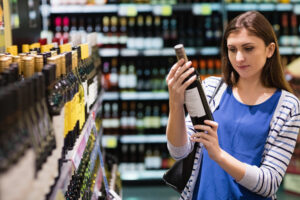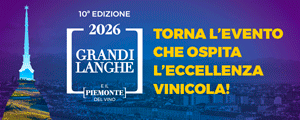The Irish health warnings that will be in force from 2026, and which Chile is now also requesting, the packaging directive that talks about reuse and not recycling (an aspect on which Italy excels), the reform of PDO and PGI in Europe, to protect quality productions linked to the territories where Italy, with wine and food, is a world leader: there are many European dossiers on which the Italian wine sector, but also vinegars and spirits, has its eyes wide open, because these are decisive issues for the future of a sector that between wine, vinegars and spirits, moves more than 20 billion euros, and represents history and identity of Italy in the world. Messages came from the Federvini assembly today in Rome, opened by the greeting of the Minister of Agriculture, Francesco Lollobrigida, who recalled how wine is “a driving force for all Made in Italy, because it is a symbol of excellence, of the link with the territory, of that model based on quality and moderate consumption that is under attack by those who want standardized and delocalizable products, to cut production costs and centralize control of the supply chain and value. Which we will fight against, leaving no sector alone, wine in the lead”. A sector that, like all made in Italy, “has the support of Ice, with many tools and especially with participation in trade fairs”, recalled President Matteo Zoppas. But which has to deal with many dossiers, starting with the new wave of “prohibition”, as it has been called, and which sees the introduction of health warnings on alcohol bottles in Ireland as a sort of new milestone. That marks, however, a sharp division between worldviews, as Gregor Zwirn, research associate at the University of Cambridge, explained.
“There are two approaches: one based on health promotion and harm reduction of certain behaviors, which says that moderate alcohol consumption is compatible with a healthy lifestyle, and only immoderate drinking is harmful, which assesses specific situations and circumstances, and then on which measures are intervened that must reach those who drink immoderately, and have the least impact on those who already drink in moderation. And that is what countries that are often Catholic-based and have not had great experiences with prohibition, such as Italy, Austria, Spain, Greece, Hungary, Portugal or France, have. Another approach is based on the axes of population and public health”, Zwirn said, “and it associates per capita alcohol consumption with alcohol-related harms, makes no difference on drinking patterns or modalities or locations, and any measure to reduce consumption is good, and is prevalent in countries that are intolerant of certain issues, often Protestant and with experiences of prohibition, such as Sweden, Norway Finland, Uk, Ireland and Russia, among others. The WHO mostly supports this approach, that there is no safe level of alcohol. But then again, it doesn’t make sense. There is nothing with zero health risk, think of sports or driving cars”. But there’s more, because, Zwirn explains, “Our studies say that pictograms like the Irish ones on labels don’t have much effect on changing consumption, they don’t give solutions, they don’t tell how to use a product. Using fear-based health warnings is not informing, for example, about the harmful effects of alcohol on driving or alcohol on cancer. So the Irish legislation on health warnings is incorrect, it talks about direct correlation between consumption and disease, it does not say how much consumption is associated with cancer and what types: the numbers say that out of 200 types of cancer 95% are not associated with alcohol, and that cancer is often a multifactorial disease. So we have to ask ourselves whether simplistic, shock and fear-based health warnings help to inform consumers, for example, or whether consumers do not feel that they are capable of making decisions in complex situations and therefore need to be somehow pushed, manipulated. Ultimately, it is not a battle that sees one’s positions based on scientific data, but on ethical issues. On what behaviors are considered bad, good, tolerated, what is wellness and health as a whole or not”. And this is where the terrain becomes extremely slippery.
“The Irish choice puts consumption and abuse on the same level, without intervening on education for a responsible and moderate approach”, commented Micaela Pallini, president of Federvini, “and what is worse is that it will prove substantially useless. On the issue, Italy has been able to move compactly, institutions and businesses, but we must now continue to team up on the international level to prevent the Irish case from inducing other countries to follow the same path. Our companies express a heritage that is not only productive, but also iconic, for their ability to represent our country in the world. Italy, in addition to having established itself internationally for its production of wines, spirits and vinegars, is also one of the most virtuous countries in terms of lifestyle, diet and moderate consumption. Underlying the Irish decision is a failure to understand that abuse is eradicated and fought with education, not prohibition. Let Ireland and Brussels more generally look to Italy, the values of the Mediterranean Diet and its culture of conscious consumption”.
In any case, however, Italians, at the very least, are confirmed as virtuous when it comes to alcohol consumption and wine in particular, as pointed out by Bruna Boroni, Director Industry Away From Home at Trade Lab. “From our survey of a sample of 1,000 people, a virtuous model emerges, linked to a limited consumption of alcoholic beverages, almost always combined with food, and conviviality, and with a high awareness of the effects of excessive consumption on health. Especially among young people. From the data”, Boroni explains, “86% of Italians report very limited (37%) and moderate (49%) alcohol consumption, while 14% say they sometimes overdo it. In 78% of cases they drink while eating (33% always, 46% in most cases). 98% say they know a lot or enough about the effects of excessive drinking on the body. 52% say they drink mostly in convivial moments, 24% in aperitifs, only 4% consume alone. The topic of conscious consumption, then, is close to the consumer’s heart: 12% are active in raising awareness among others (a share that rises to 18% among young people), 30% are sensitive to the topic and seek information, and 42% are nonetheless attentive. 51% also say they want to know more. And for 100% of consumers, it is important to do communication on this issue, especially on social media”. An important issue, that of the relationship between health and alcohol, which impacts and will increasingly impact, directly and indirectly, consumption and markets.
Education on moderate consumption of alcoholic beverages, in any case, remains one of the essential missions of Federvini. Which presented the new “Guidelines on Self-Regulation in the Commercial and Promotional Communication of Alcoholic Beverages”, an organic document, produced also with the advice of lawyer Marco Giuri of Studio Giuri in Florence, among the leading experts in wine & food law, which summarizes the recommendations that all member companies must take as reference in their actions of communication to the public. The purpose of the Guidelines is to ensure a standard of commercial and promotional communication of alcoholic beverages that is fair and transparent and that promotes consumption patterns inspired by the criteria of measurement and responsibility.
“We considered it essential to draw up the Guidelines for self-regulation in the commercial and promotional communication of alcoholic beverages to recall those principles and values of promoting moderate and responsible consumption, which have always been part of Federvini’s mission. From this consciousness, which connotes the spirit of our companies, come the Guidelines that intend to provide members with a concrete tool for planning ethically correct communication”, recalled Giuseppe D’Avino, president of the Federvini Spirits Group.
Consumer culture was also the focus of the “No Binge - Communicating Responsible Consumption” initiative launched by the Federation together with La Sapienza University of Rome. The initiative was presented by Alberto Mattiacci, professor of Marketing & Business Management at La Sapienza University, and Barbara Herlitzka, chair of the Federvini Alcoholic Beverages Social Aspects Committee, who said they were “proud of the success of this first initiative, which confirms the importance of raising awareness, particularly among younger people, on the issue of moderation. We have had extremely positive feedback from the students involved, who have well understood the educational value of this project. We count on extending this scope of collaboration further, involving other Italian academic realities, with the hope of involving institutions”.
Whatever the case, however, on the market, Italy must play the game of quality, linked to its Denominations of Origin, a driving force in terms of value and communication for the entire agri-food sector, wine in the lead, as recalled Albiera Antinori, president of Federvini’s Wines Group, and at the helm of Marchesi Antinori, among the most important Italian wine companies. “The value of Geographical Indications is recognized by the final consumer in both the Italian and foreign markets, leading to a price differential between PDO and table wines both in large-scale distribution (+228%) and on the export front (+50%). Not only Geographical Indications and territory, among the drivers of consumer choice, brand also plays an important role: 21% of consumers think so, as revealed by the consumer survey conducted by Nomisma for Federvini. We gather these data with confidence, convinced that the road to valorization is a one-way street: only by working on the intrinsic quality and intangible value of our products will we be able to secure our sector from the storms we see on the horizon. We are asking the government for simplification and a regulatory framework that fosters value creation”.
Copyright © 2000/2026
Contatti: info@winenews.it
Seguici anche su Twitter: @WineNewsIt
Seguici anche su Facebook: @winenewsit
Questo articolo è tratto dall'archivio di WineNews - Tutti i diritti riservati - Copyright © 2000/2026
























































































































































































